Embarking on a weight loss journey is widely recognized to necessitate focusing your diet around nutritious whole foods. Incorporating more of the best fruits for weight loss can be an easy and delicious nutrition upgrade to facilitate reaching your goals. These low-calorie, high-fiber fruits offer essential vitamins, minerals and more to support overall health and weight management.
This in-depth guide will explore some of the top best fruits for weight loss. It will analyze why they are beneficial for weight management and highlight their specific nutritional benefits. You’ll also find tips on preparation methods to easily enjoy more of these slimming fruits. Read on to fully utilize fruit as part of your successful and sustainable weight loss regimen.
What Makes These Fruits Best For Belly Fat And Rapid Weight Loss?
Certain properties make some fruits shine brighter than others when aiming to lose weight:
- Low in calories
- High in fiber for increased satiety
- Contains properties that support metabolism or burn fat
- Assists regulation of blood sugar and insulin
- Provides essential vitamins and minerals
Fruits that fit this nutrition profile can benefit weight loss in several key ways. Their high fiber content keeps you satisfied for longer while their low calorie counts make it achievable to maintain a calorie deficit. They also give your body the vitamins, minerals and antioxidants it needs to stay energized on fewer calories.
Additionally, fruits that help control hormones, boost metabolism or have fat-burning abilities give your weight loss efforts an added push. Combined with balanced diet and regular exercise, the following fruits can positively impact your waistline!
Grapefruit

Grapefruit is often hailed as the quintessential weight loss fruit, earning it a consistent place among the best fruits for weight loss. With a scant 74 calories per half, grapefruit provides satiating volume that easily fits into a reduced calorie diet.
But the biggest weight loss power of grapefruits lies in their potential fat-burning effects. Studies demonstrate grapefruit’s ability to boost metabolism, regulate blood sugar and influence insulin levels – all beneficial biological impacts for weight loss and maintenance.
Other grapefruit advantages:
- High in fat-burning vitamin C
- Contains potassium to reduce bloating by regulating fluids
- Offers antioxidants to fight inflammation and boost immunity
Tart Cherries
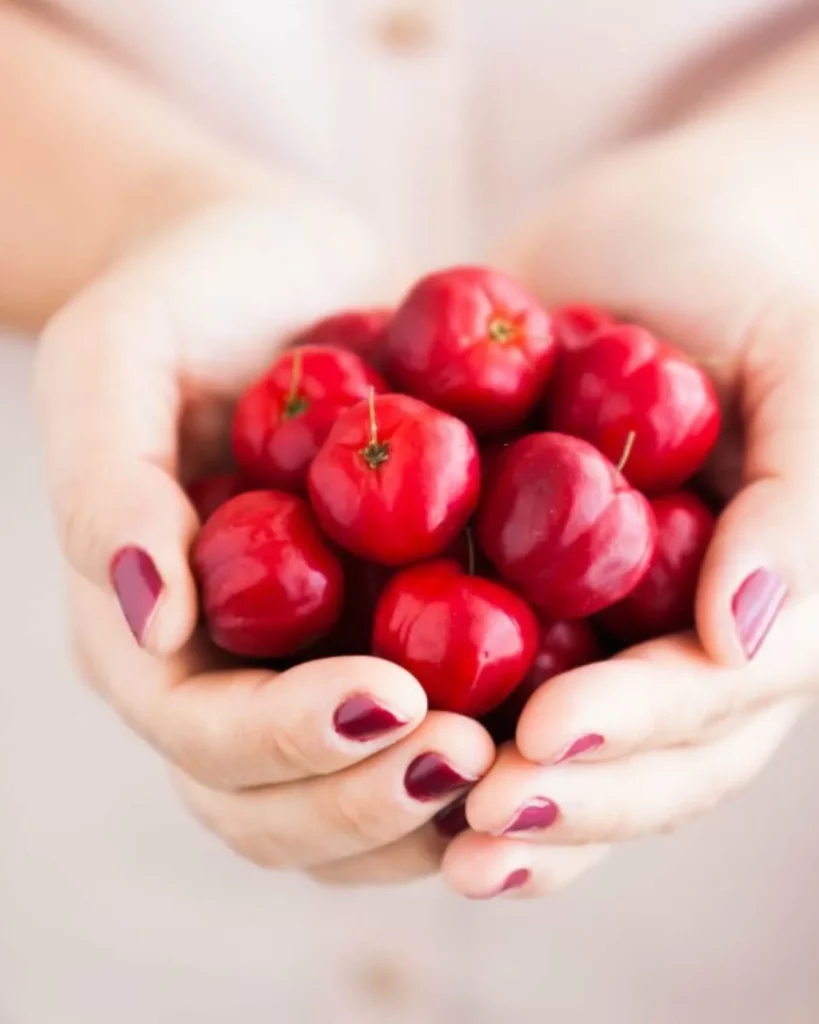
Tart cherries check every box required to be considered among the best fruits for weight loss. Low in calories with only 78 per cup, they supply weight management superfood properties beyond their sweet flavor. As one of the best fruits for weight loss, their impressive vitamin and mineral content provides broad nutritional benefits.
For one, cherries contain melatonin which helps regulate healthy sleep-wake cycles when enjoyed before bedtime. Getting adequate, high-quality sleep is crucial for productive weight loss efforts and overall health. With about 1 mg of melatonin per cup, cherries can help improve sleep issues when consumed at night.
Additional advantages of tart cherries include:
- Contain potassium to support heart health
- Have two powerful antioxidant compounds to fight inflammation
- Provide relief for muscle soreness and joint pain
Peaches
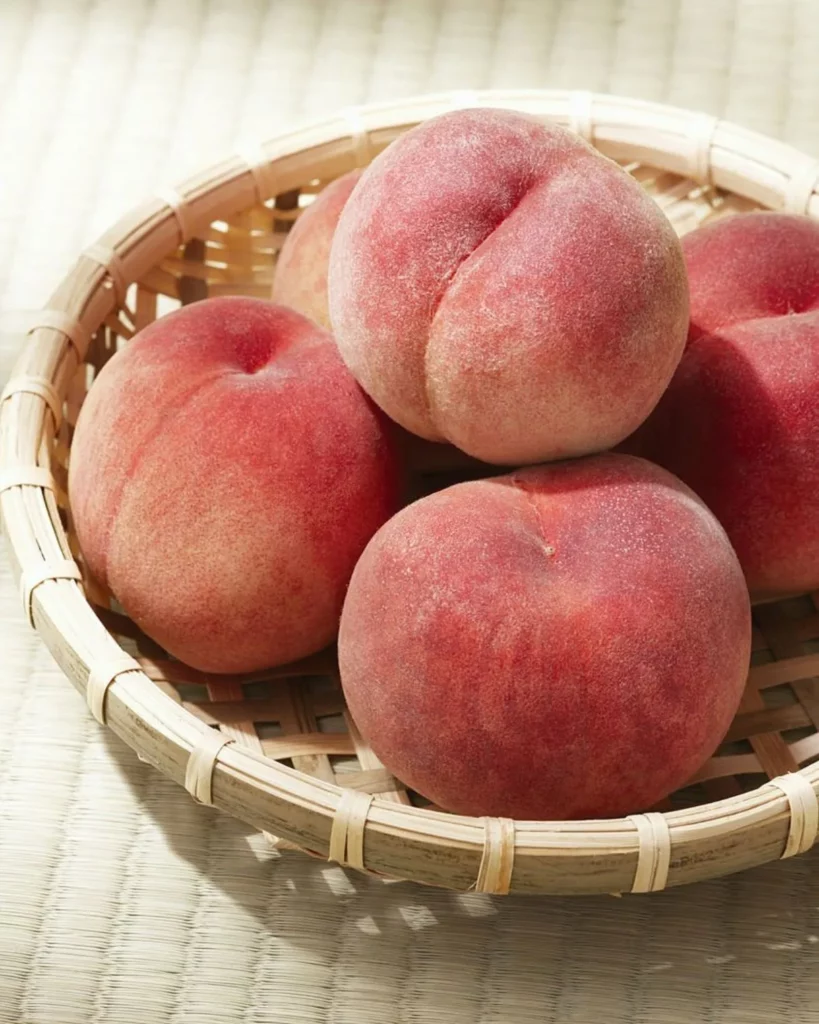
Juicy, sweet and delicious, peaches make losing weight feel like a pleasure. Their low 59 calories per peach makes it easy to enjoy this fuzzy fruit often and abundantly while shedding pounds.
Beyond their sweet taste, peaches offer an awesome nutritional profile cementing their status as one of the best fruits for weight loss.
Additional advantages of Peaches include:
- They are high in fiber to control hunger
- Contains Vitamin C, key for boosting fat-burning
- Offer antioxidants for immunity and metabolism-boosting
- Have minerals including potassium and magnesium for improved digestion
Raspberries
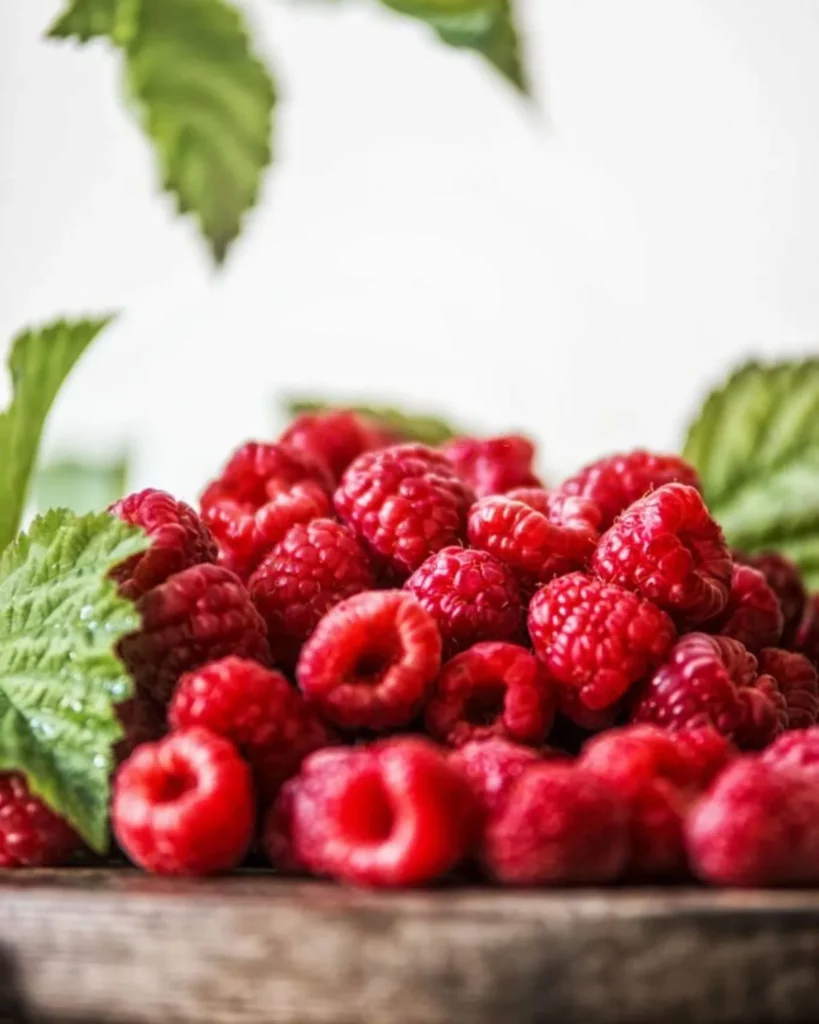
Raspberries offer the perfect balance of sweet and tart flavors. Their jam-like juiciness makes them a mouthwatering addition to the best fruits for weight loss lineup.
With a mere 64 calories per cup, raspberries deliver essential nutrients and satisfying fiber in a low-calorie package. Their special pectin fiber expands in your stomach to trigger stretch receptors that signal satiety to your brain. This makes them an amazing snack option.
Additional advantages of Raspberries include:
- Provide ellagic acid, gallic acid, and rutin antioxidants
- Contains trace mineral manganese which aids the metabolism
- Offer immunity-boosting Vitamin C plus iron absorption benefits
Blueberries
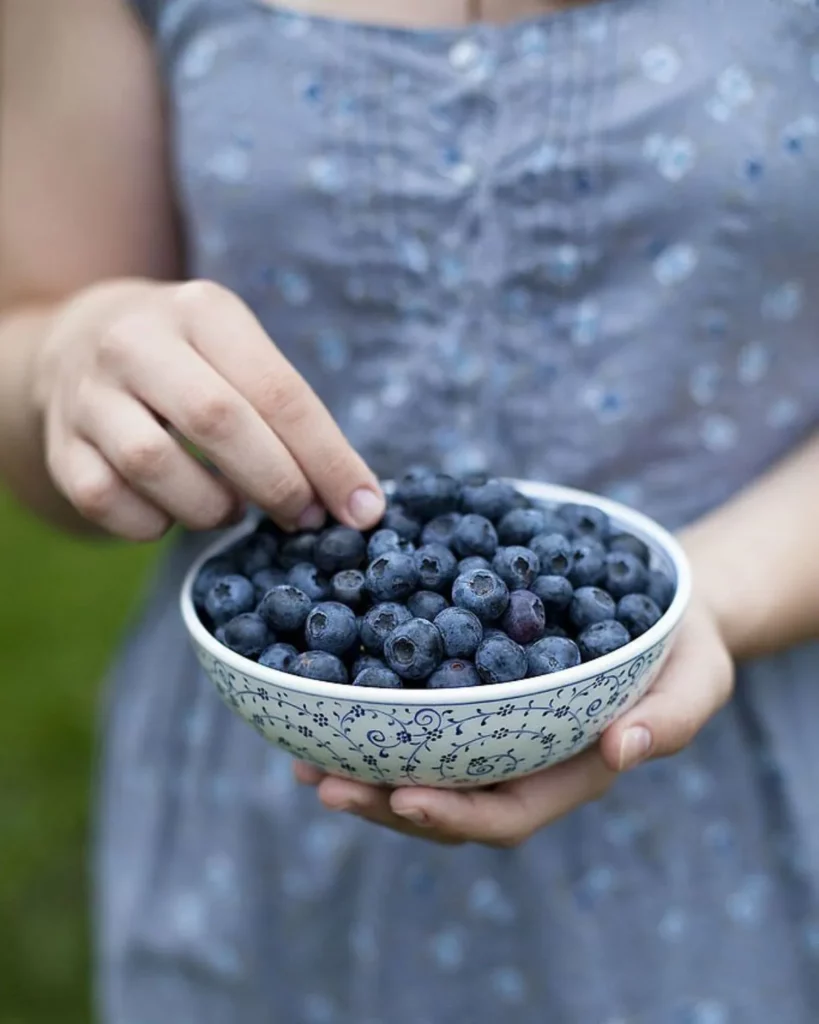
Blueberries offer the nutrition profile of a superfood while tasting like a sweet indulgence, earning them a spot on this best fruits for weight loss list. Just 84 calories per cup makes them an ideal snack or smoothie addition.
Beyond low calories, blueberries contain beneficial compounds that modulate blood sugar spikes. Regulating glucose levels prevents energy crashes and sugar cravings – two common weight loss saboteurs. More steady energy promotes exercising over emotional eating.
Additional blueberry perks:
- Rich source of satiating fiber
- Provide Vitamin C and manganese
- Powerful antioxidants protect against cell damage
- May boost metabolism through phytochemical effects
Strawberries
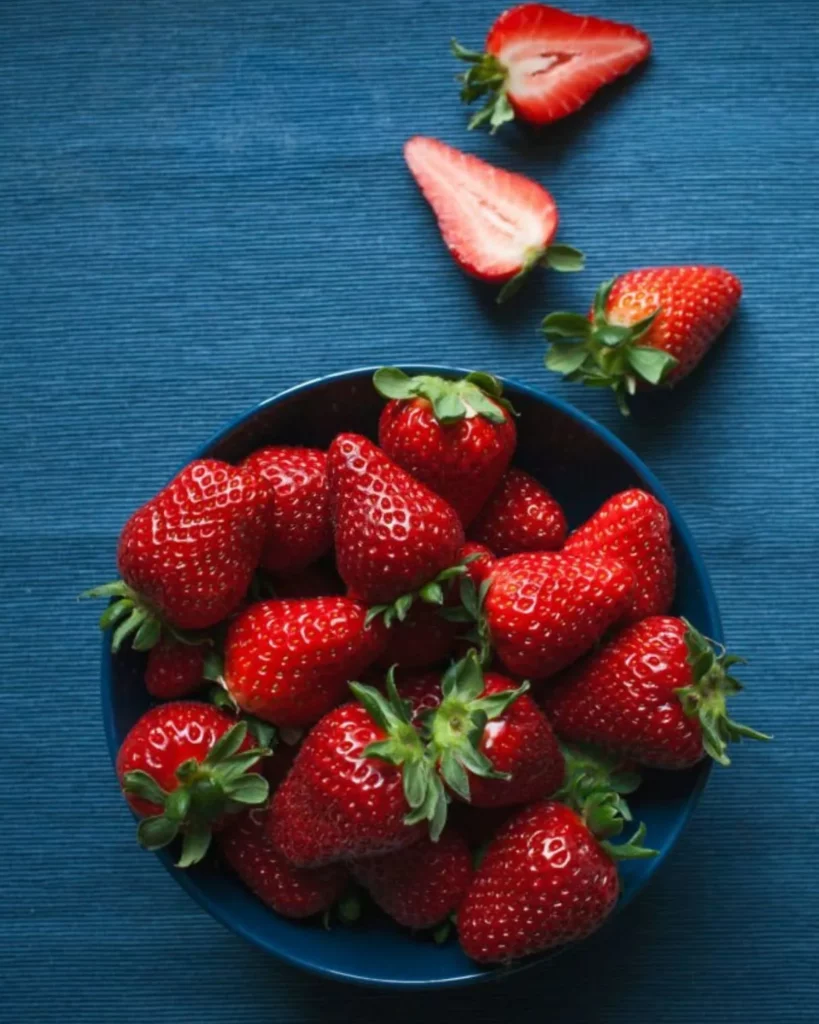
Few things feel as deeply refreshing as biting into a ripe, red strawberry on a hot summer day. As part of their sweet appeal, strawberries offer an easy way to make weight loss feel fabulous.
With less than 50 calories apiece, strawberries brilliantly illustrate that you need not sacrifice flavor or satisfaction to choose lighter fare. Combining sweetness and juiciness into an irresistible bite-sized package, strawberries instead give your weight loss goals a delicious boost!
Beyond their trademark taste, strawberries supply:
- Hunger conquering fiber
- Immunity-boosting vitamin C
- Essential B-complex vitamins like folate and riboflavin
- Trace minerals magnesium, potassium, and manganese
- Flavonoids, anthocyanins, and ellagic acid antioxidants
Watermelon
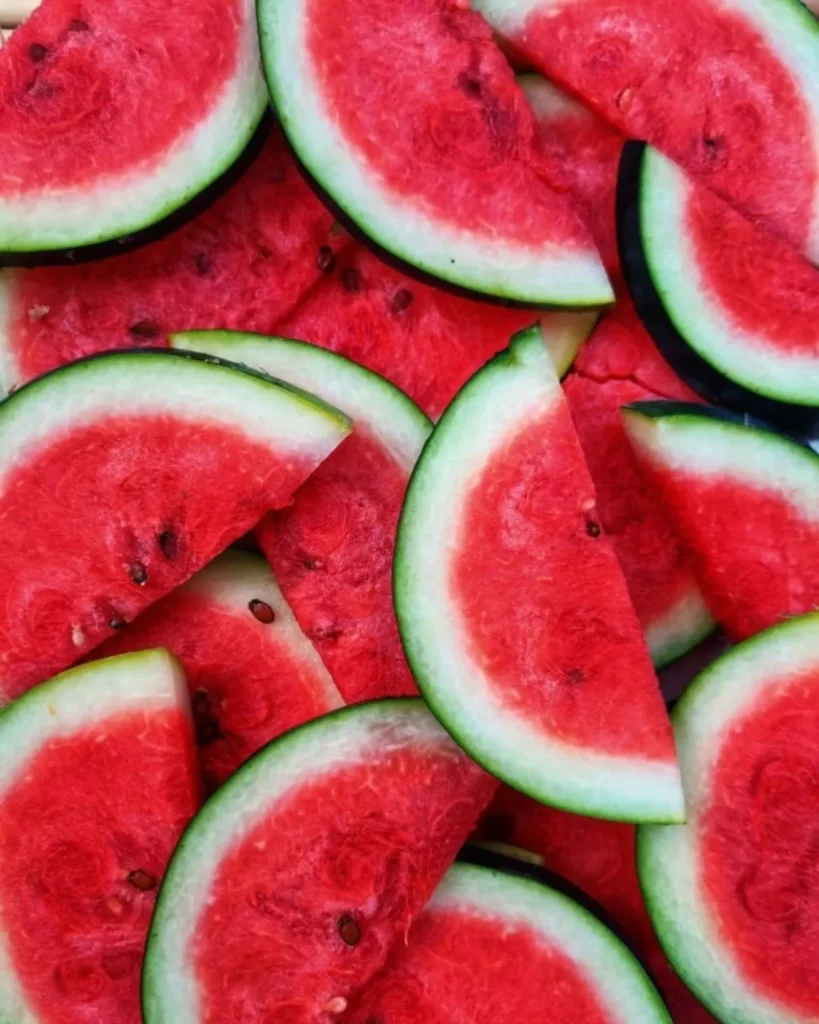
Watermelon is the quintessential hot weather treat, with its sweet, thirst-quenching crispness beckoning us during summer. Fortunately for weight loss seekers, this refreshing fruit also packs some slimming advantages.
Its high water content translates to low calories – just 80 per 2-cup serving! This makes it far lighter fare than most other fruits. While hydrating, watermelon also delivers vital nutrients, especially immunity-boosting Vitamins A, B-6, and C.
Beyond their trademark taste, Watermelon supply:
- High levels of amino acid citrulline
- Contains lycopene, an antioxidant nutrient
- Its Cucurbitacin E compound may ward off inflammation
- Offers modest amounts of potassium and magnesium
The Impact Of The Best Fruits For Weight Loss
When combined with increased activity and overall healthy lifestyle upgrades, regularly eating more of the best fruits for weight loss can profoundly impact your weight management success. As part of a balanced calorie-controlled diet, their nutritional advantages facilitate fat loss.
The fiber content of these fruits allows you to feel energized and fulfilled while potentially consuming fewer daily calories. Their high water volumes paired with fiber create extended satiety between meals. Essential vitamins and minerals provide immune system support, keeping your body primed to power through tough workouts.
Antioxidants protect cells against the type of damage done during fat metabolism. This enables more efficient energy utilization from your food. Some compounds influence insulin, blood sugar, and fat-burning pathways for enhanced biological weight management.
When buying fruit, opt for organic, seasonal varieties whenever possible for peak freshness and highest phytochemical levels. Shop local farmers’ markets to source top-quality produce.
Get creative with preparation by eating fruits alone, together, baked into oatmeal, or blended into smoothies. The options are endless!
Final Verdict
Achieving sustained weight loss and a healthier body composition requires comprehensive lifestyle habits. No one individual food will magically cause excess fat to disappear. However, strategically adding more of the best fruits for weight loss as outlined here will positively influence these efforts.
Low in calories yet abundant in satiating fiber, vital nutrients, and hydration, fruits like grapefruit, cherries, berries, peaches, and more belong in any balanced weight loss plan. Their vitamins and minerals provide your body with the full spectrum fuel source it needs to function optimally, even on fewer calories. Certain beneficial compounds boost metabolism, block fat accumulation, and regulate blood sugar for biologically-supported weight management.
If weight loss feels like an uphill battle, let science-backed nutrition adjustments make it more attainable! With their sweet, mouthwatering flavors giving your journey a burst of joy, fruits offer a delicious route to your goals. Consume mindfully, observing how different amounts and preparation methods affect your progress. Integrate more fruit along with veggies, lean protein, and whole grains as part of a balanced diet and active lifestyle regimen tailored to your needs.
Also Read : 5 Best Weight Loss Supplements For Men To Slim Down
Frequently Asked Questions
Some of the best fruits for weight loss based on their nutrition profiles are grapefruit, tart cherries, peaches, raspberries, blueberries, strawberries, and watermelon. These fruits are low in calories, high in fiber and water content to promote satiety, contain compounds to help burn fat or regulate blood sugar levels, and provide essential vitamins and minerals.
Grapefruit is often considered a top weight loss fruit because it has fat burning properties. Studies show that grapefruit may help boost metabolism, regulate blood sugar and insulin levels. It’s also low in calories but high in satiating fiber and immunity boosting vitamin C. These characteristics make it an ideal food to facilitate weight loss.
The fiber content in cherries, berries and most fruits helps you stay satisfied on fewer calories to facilitate weight loss. Cherries also contain melatonin to support sleep, which is essential for productive dieting and exercise efforts. Berries are very low in calories and offer antioxidants and polyphenols linked to anti-obesity effects.
The most effective ways to eat fruit for weight loss are to consume them whole, include them in smoothies paired with protein or yogurt, bake them into low sugar oatmeal recipes, or dice them over leafy green salads. Avoid blending whole fruits into sugary juice or adding excessive dressings on fruit salads.
Eating excessive fruit could contribute extra sugars and calories compared to vegetables, undermining a calorie deficit. Some people also experience digestive issues like bloating or diarrhea when suddenly increasing fiber intake so gradual changes are recommended. As long as fruit intake is moderate, it offers tremendous weight loss advantages.
Choosing organic fruit reduces your exposure to pesticide residue and may offer increased antioxidant activity. However, both conventional and organic varieties can facilitate weight loss, so select based on personal taste preferences and budget considerations. Just be sure all fruit is thoroughly washed. The most important thing is that you’re getting in a mixed variety of colors.
References
- Murphy, M., Barraj, L.M., and Rampersaud, G.C. (2014). “Consumption of grapefruit is associated with higher nutrient intakes and diet quality among adults, and more favorable anthropometrics in women, NHANES 2003–2008.” Food & Nutrition Research, 58(1), 22179.
https://doi.org/10.3402/fnr.v58.22179 - Kelley, D.S., Adkins, Y., and Laugero, K.D. (2018). “A Review of the Health Benefits of Cherries.” Nutrients, 10(3), 368.
https://doi.org/10.3390/nu10030368 - USDA.gov. (2023). “FoodData Central.” https://fdc.nal.usda.gov/fdc-app.html#/food-details/171719/nutrients
- Ferretti, G., Bacchetti, T., Belleggia, A., and Neri, D. (2010). “Cherry Antioxidants: From Farm to Table.” Molecules, 15(10), 6993–7005.
https://doi.org/10.3390/molecules15106993 - Aneta Wojdyło, Nowicka, P., Laskowski, P., and Oszmiański, J. (2014). “Evaluation of Sour Cherry (Prunus cerasus L.) Fruits for Their Polyphenol Content, Antioxidant Properties, and Nutritional Components.” Journal of Agricultural and Food Chemistry, 62(51), 12332–12345.
https://doi.org/10.1021/jf504023z - Weaver, C.M. (2013). “Potassium and Health.” Advances in Nutrition, 4(3), 368S-377S.
https://doi.org/10.3945/an.112.003533 - Pigeon, W.R., Carr, M., Gorman, C., and Perlis, M.L. (2010). “Effects of a Tart Cherry Juice Beverage on the Sleep of Older Adults with Insomnia: A Pilot Study.” Journal of Medicinal Food, 13(3), 579–583.
https://doi.org/10.1089/jmf.2009.0096 - Fujioka, K., Greenway, F.L., Sheard, J., and Ying, Y. (2006). “The Effects of Grapefruit on Weight and Insulin Resistance: Relationship to the Metabolic Syndrome.” Journal of Medicinal Food, 9(1), 49–54.
https://doi.org/10.1089/jmf.2006.9.49